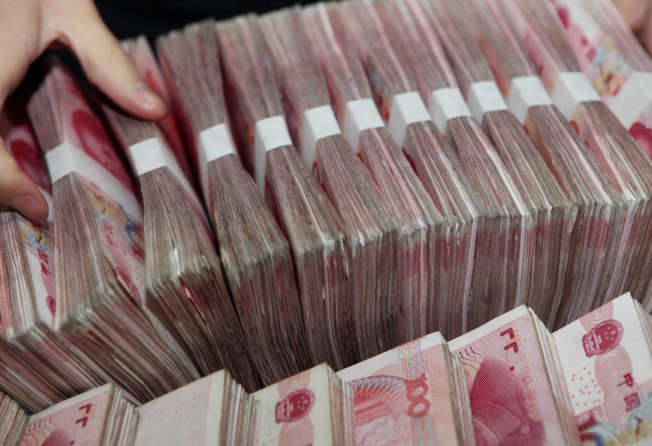Planning agency tangled up by graft
Commission tasked with streamlining economic planning should get its own house in order first

Over the past few days, a middle-level mainland bureaucrat has become one of the hottest talking points in China as anti-graft investigators confirmed that a record 200 million yuan (HK$252 million ) in cash was seized from his home - the biggest known haul of dirty money in the history of the People's Republic.
Even for hard-boiled mainlanders who are already numb to the scale of official corruption, the record set by Wei Pengyuan, deputy director of the coal department at the National Development and Reform Commission (NDRC), still comes as a shocker. The irony would not be lost on many who read media reports that Peng dressed plainly and was often seen riding an old bicycle to work before he was detained.
In a commentary on what is called "collapsing corruption", Xinhua lamented the NDRC has too much power, which is concentrated in too few people, left unchecked and without proper supervision.
This has led to the "collapsing" of departments. Among 11 NDRC officials detained so far, five worked for the energy bureau, including its bureau chief, Liu Tienan. Another five worked for the pricing regulation department, including its incumbent and previous chiefs.
The underlying message is the detentions are just a tip of the iceberg.
The NDRC is the most deceptively named of any government ministry, as it focuses neither on development nor reform
It traces its origin to the omnipotent State Planning Commission, which was set up in the 1950s to regulate production of everything from steel to toothpaste in a planned economy.
As the country was making the transition to a market economy, the name was changed in 1998 to the State Development and Planning Commission as part of an attempt to move it from micro-management towards broad economic oversight.
In 2003, when Wen Jiabao became premier, the NDRC acquired its current name as it took over other government functions including the offices on reform and domestic trade.
Over the past years, the central government has delegated the power of approving smaller industrial and infrastructure projects, those valued in the tens of millions of yuan, to local authorities. But the NDRC still retains sweeping power to regulate all major industries and approve projects with budgets in the billion-yuan range, from airports to carmaking and railways.
Mainland hierarchy values elaborate protocols for seniority and rankings, but the opposite is true at the commission's headquarters, where powerful provincial party chiefs or city mayors line up with caps in hand to pay respect to and lobby NDRC officials of much lower rankings. It's been that way since the commission's inception back in the '50s. It is not hard to conclude that enormous bribes are paid to those officials for their approval of mega projects.
It is true that since Premier Li Keqiang came to power nearly two years ago, he has made it a priority to eliminate or delegate over 600 approval procedures, most of them vested with the NDRC. But the fact remains the ministry still retains power for giving the go-ahead for hundreds of types of projects.
Some mainland analysts have long pointed out the irony that NDRC is the key ministry entrusted to push for economic reform and streamline regulation but it has the most regulatory power.
As long as the NDRC continues to operate as it does now, it will continue to make a mockery of any talk of economic reforms.